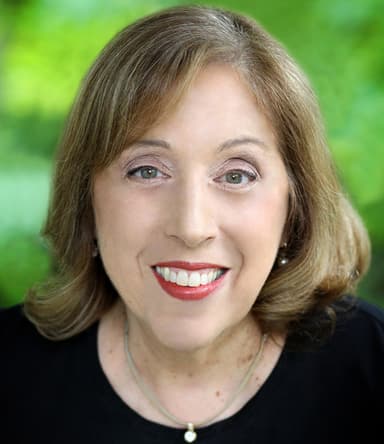
When depression creeps in and hopeless thoughts take over, it can be hard to find the light. Add to that dementia and the inability to live independently, and the sufferer can feel truly lost. While no one is immune to these afflictions, seniors and veterans are surely the most vulnerable.
Jill Dover has found a seemingly magic and deceptively simple elixir: music. Whether a familiar patriotic song, a swing tune, or a hymn, Dover recognizes that music can be powerfully rejuvenating for those accustomed to existing in dead silence or with the monotonous background noise of a TV.
Dover founded Senior Sing A-Long 10 years ago to bring music into the lives of seniors, veterans, and the disabled, some living out their days in nursing homes and assisted-care facilities. Her efforts are helping 8,000 people a month in Grand Rapids and eight surrounding counties to benefit mentally and physically through regularly scheduled musical programs.
Dover first witnessed the power of music when her late grandmother, Katherine Van Haaften, moved into a nursing home after showing signs of dementia and breaking her hip. The facility offered quality care, but that wasn’t sufficient to lessen her feelings of hopelessness.
“She had always been so spunky and never considered herself old. She would point to peers who weren’t as active and whom she delivered meals-on-wheels to and say, ‘Look; they’re not doing what I’m doing!’” recalls Dover. When her mental and physical capabilities dramatically declined, Van Haaften sank into a depression. “She didn’t want to live,” says Dover.
Then, one day, Van Haaften attended a piano performance, and it was as though it flipped a switch. “She had always loved music, and began singing, tapping her toes, and swaying to the songs from her wheelchair. She became the grandmother I knew,” Dover says. Other residents reacted similarly—clapping, moving their bodies, recalling tunes from the past, and in some cases dancing. “I realized that even if parts of people’s brains are destroyed, there are other parts that remain and connect them with music. These people should feel joy in their lives rather than think they’re in a place to die,” she says.
When Dover’s mother inquired how often the pianist came, she was told the facility couldn’t afford it more than once a month. Brainstorming with her parents and the family pastor, Dover decided she would start an organization to fund more performances at a greater number of facilities. Dover reached out to other nursing homes and inquired if they’d be interested in having musicians perform therefor a nominal fee. Everyone responded enthusiastically, so Dover went to work to line up an ensemble willing to be paid lower less than union scale. One day while at a donut shop, she heard an accordionist play, and asked if he’d be interested. He agreed, and before long, she had signed on five of his colleagues.
Boosting the number of musicians on board and the frequency of performances, has made a huge impact on the residents’ lives. One sixty-something veteran hadn’t spoken in three years and the staff assumed he was mute. But after a guitar player started strumming and singing “You are my sunshine, my only sunshine. . .” the man uttered three words from the song. Jaws dropped. “A staff member called the man’s wife, and we thought she was unhappy since the call was met with silence. But she quickly asked when the musician was returning so she could attend,” Dover says. “She did, and bawled as her husband spoke again. Music has the ability to stimulate memories other senses can’t.”
When Dover incorporated her organization as a 501(c)3 nonprofit, she had 20 musicians, and 15 facilities. Ten years later, she now has 125 musicians, including her broker, Paul Sherwood, GRI, who plays the drums in his band, BigBandBeat, plus a man who makes music with spoons, and singers skilled in hymns, iconic wartime songs such as “Boogie Woogie Bugle Boy,” and classics like “Take Me Out to the Ball Game.”
The musicians perform at 67 facilities, earning an average of $75 per group for a performance. “The money is almost secondary,” says Sherwood, whose group of 10 typically receives $120 for a nursing-home gig versus its customary $2,500. “It’s very rewarding. You see how people come alive when they hear us play,” he says.
And with grants from the Fremont Community and Keller Foundations, Dover hired her first paid staff member, board-certified musical therapist Libby Norris, last year. Norris has worked to expand programming and give seniors iPods with personalized playlists and noise-cancelling headphones. “Because the residents’ challenges are all different, their needs vary,” Norris says. For some, certain songs jog their memory. For others, they thrive by shaking a tambourine or simply by staying awake and interacting with a group.
Proof of success is that the performances often are the best-attended events at each facility. “They reach the broadest number of our residents,” says Susan Lamos, Life Engagement Director at Vista Springs in Wyoming, Mich., who adds, “Music helps those who are lonely or agitated. It gets them to smile and be involved.”
Such stories are sweet music to Dover. “I hope that the best life is available for everybody until their end. Music definitely helps to do that,” she says.
Contact Dover at jdover@grar.com. Find more information at seniorsingalong.org.









